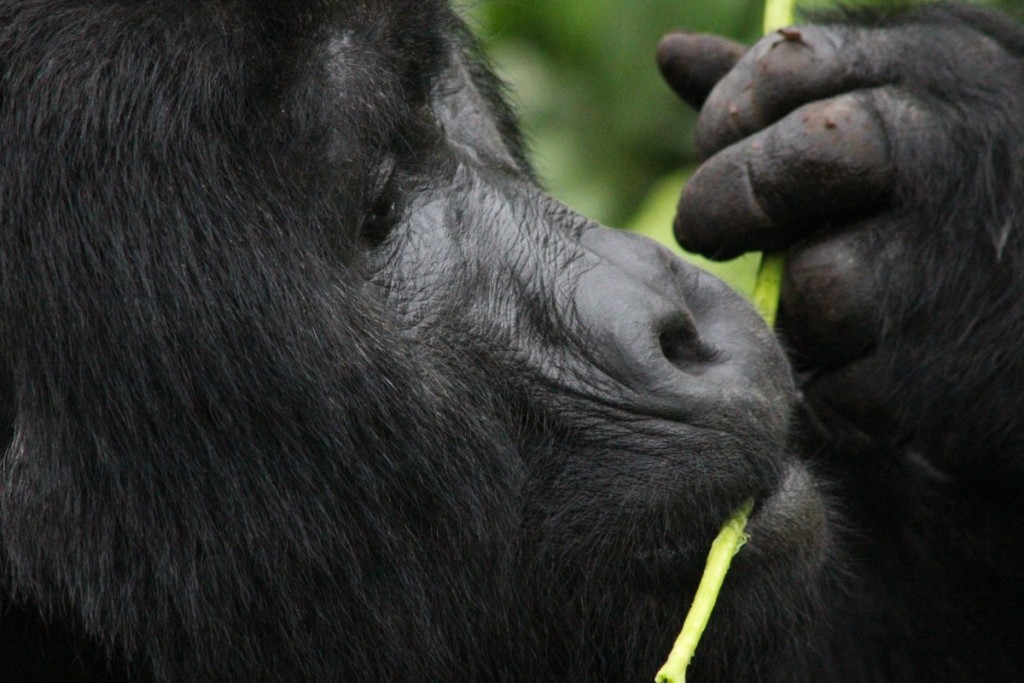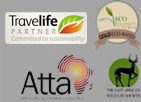
Uganda boasts stunning landscapes, diverse wildlife including over 1000 bird species, varied flora and fauna and is home to the critically endangered Mountain Gorillas. Our travel information section aims to provide you with useful information and resources for your safari holiday to Uganda.
- Contact us for more information or to discuss your travel plans with one of our dedicated travel consultants.
-
Getting There
Rwanda’s main international airport is Entebbe International Airport (EBB), located about 40kms from the Capital Kampala.
There are currently no direct flights from UK or US into Entebbe, however it is less than a 1:30hr flight from Nairobi Kenya & less than 1hr flight from Kigali Rwanda.
You can check your best flight route here
-
Time Zone
Time zone in Rwanda (GMT+3)
-
Security & General Travel Safety
To view the current travel advisory to Uganda click here:UK & USA
Our head office is based in Nairobi and we work with reputable safari companies who are located on the ground in Uganda. These companies are the eyes and ears on the ground and can inform our head office in Nairobi of any security situation as it may happen, ensuring that we can act and respond swiftly.
Other general travel safety advice:
– In the cities and main tourist areas, be on the alert for handbag snatchers and pick pockets.
– Do not travel with any precious jewellery items.
– Make copies of your travel documents and keep these in a safe place – separate from the original documents.
-Split out cash into separate bundles of small amounts and keep separately.
– Ensure that luggage can be locked.
– Always wear sear belts whilst traveling in vehicles and ensure doors are locked.
-
Currency
The official currency of Uganda is the Ugandan Shilling (UGX) although US$ is also widely used in many shops, hotels, lodges and restaurants that cater to travellers.
Ensure to travel with lower denomination notes, as change given from high tender notes may not be easily available.
When tipping, do so in local currency or USD$
Many camps/lodges will be pre-paid before your safari, with tips needing to be settled upon departure. If you do need to settle something to a bill, please be aware that some camps/lodges in remote areas may not accept credit/bank cards, so it is advised to have enough US$ or Ugandan Shillings in cash to cover any additional costs.
Always inform your bank that you are travelling outside of the country as they might block any attempt to withdraw cash or use card machines if they have not been informed beforehand.
-
Tips & Gratuities
Tipping is entirely at your discretion and although it is not a requirement it is customary to tip for good service. There is not a set amount to tip, so please take the following information as a guideline:
Tipping Guidelines:
Guides: $5-$15 per person per track/day
Gorilla porters: $5-$15 per person per track/day
General staff: $5-$15 per guest per day
Gratuities for the general staff are evenly distributed between all team members. Tipping boxes are usually available on your day of departure from each lodge.
-
Health Information
Malaria:
It is advised that visitors take malaria precautions when travelling to Uganda. It is recommended that you contact your Doctor or Travel Health Clinic at least 6-8 weeks prior to travel.
You can reduce the risk of malaria by using prophylactics (which should be started before arriving in Uganda and under your doctor’s guidance) and by following these simple procedures:
– Wear long sleeves and long trousers to avoid bites from mosquitos, insects and ticks.
– Apply mosquito repellents on a regular basis to exposed skin.
– Where possible sleep under a mosquito net.
– Burn an insect/mosquito repellent candle or coil.
All travellers should be aware of the signs and symptoms of malaria and should be advised to seek immediate medical attention if these occur either whilst abroad or up to a year after their return. Speak to your Doctor or Travel Health Clinic for more information.
Vaccinations:
Yellow Fever – A yellow fever vaccination is required to enter Uganda for all travellers over 1yr of age.
The recommendations regarding vaccinations & anti-malaria tablets need to be discussed with a professional, therefore it is advised that you contact your Doctor/medical centre/ travel health clinic for up-to-date details, this should ideally be done at least 8 weeks before you travel.
COVID-19:
Uganda’s Port Health Authority may check your temperature on arrival. If your temperature is above normal or you display COVID-19 symptoms, they may ask you to take a COVID-19 test.For more information see the Centres for Disease Control and Prevention
-
Drinking Water & De-Hydration
- Drinking Water:
Do not drink water straight from the tap, always drink from bottled water.
Avoid ice as this may be used from tap water.
Brush teeth with bottled drinking water.
De-Hydration
Always take a bottle of drinking water in your day bag on any activity or excursions – even if it’s a short one – and take regular, small drinks of water.
Wear a hat and sunscreen at all times and cover up/take shade from the heat of the sun, especially during the hottest times of the day.
-
Bites & Stings
Bugs and small creatures are all a part of being in the wilds of Africa. It is of course important to take precautions against any opportunity for bites or stings, so being aware is important.
When walking in the bush always wear long trousers and enclosed shoes or walking boots , with thick socks covering the ankles for protection. When walking in long grass, check your legs and clothes for grass ticks – especially in the rainy season, even when you are wearing long trousers.
Check & shake out shoes and walking boots before putting them on.
Always look first to see where you are sitting, when picking something up or when putting your hand/foot into something, like a bag or shoe – check first!
If you think you may have been bitten or stung by something, always inform the Camp Manager & Safari Guide as soon as possible.
-
Internet, Electricity and Plug Standards
Internet and mobile coverage is available throughout Uganda, with 5G network around Kampala area. If necessary, we can check each camp individually if there is a wish to know if it has an internet connection.
Uganda operates on a 240V supply voltage and 50Hz. Solar power is also common in safari locations.
Uganda uses plug types G (3 pin)
-
Climate
Equatorial climate (25 – 30°C) but nights can be cold (especially at lodges near the high altitude rainforests). Chance of rain in the Bwindi region is high so bring rain gear.
There are two rainy seasons in a year, March to May and September to December.
April tends to have the most rain and June/July the least.
-
Visa & Passport Requirements
PASSPORT
• Passport valid for a least 6 months from your date of entry.
• Enough blank pages in your passport to fit the required entry visa (advise min of 3).VISA:
Nationalities that do not require a Visa to enter Uganda:
COMESA: Angola, Eritrea, Malawi,Madagascar, Seychelles, Swaziland, Zambia, Comoros, Kenya, Mauritius, Zimbabwe
EAC: Tanzania, Rwanda, Kenya,Burundi, South Sudan
OTHERS: Antigua, Barbados, Fiji,Grenada, Lesotho, Sierra Leone, Solomon Islands, Vanuatu, Cyprus, Bahamas,Belize, Gambia, Jamaica, Malta, Singapore, St. Vincent and the Grenadines.All other nationalities do require a visa to enter Uganda.
The cost is US$50 for single entry tourist visa, validity is 90 days (three months) from the day of Approval.Applicants must apply for a visa using the E-Visa portal or CLICK HERE for more information
If you are traveling to Uganda and Kenya &/or Rwanda: you can get an East Africa Visa – CLICK HERE for more information and to apply
-
Clothing Suggestions
With changeable weather conditions and dense forest vegetation it is advisable to take layers of protective clothing. We recommend wearing the following on a Gorilla Trek:
And carry a small rucksack with:
Walking sticks are available at the Park headquarters and porters can be hired to assist with carrying baggage.
A sealed plastic bag around camera / lenses will help keep them dry on the trek.
Pockets are useful for valuables and spare camera batteries / lenses etc as all other equipment must be left with porters approx 200 metres away from the gorilla groups.
Also consider packing:
– Comfortable, loose fitting cotton clothing in dark green, khaki or brown is recommended. Black, blue, and other dark-colored clothes are not recommended, as they may attract tsetse flies near the water.
– Quick-drying clothes.
– Long sleeves and long trousers, shorts and t-shorts with enclosed footware.
– Jacket or fleece for early mornings and evenings, when it can get chilly.
– Hat to keep the sun off and protect from sunburn.
– Swimming costume.
– Casual clothes and comfortable shoes for relaxing at the lodges.
– Small day pack to hold water bottle, binoculars, notebook and pen, sunglasses, flashlight &/or head torch.
See here for our clothing packing guide
-
Travel Insurance
All travellers must have adequate and comprehensive travel health insurance. Make sure your travel insurance covers all the activities you plan on doing in Uganda and covers your full stay in the country and travel to/from.
-
Gorilla Treking
In order to minimise human contact with the gorilla groups the Ugandan authorities issue Gorilla Permits – ensuring that a limited number of visitors can observe them each day. These permits are in high demand, so do book early to secure your chosen date/s.
1 Gorilla Permit is $1500 per person and once purchased are non-refundable
Gorilla Rules
Eco-tourism is nature-based tourism that meets conservation objectives. Gorilla tourism depends largely on the conservation of these magnificent animals. Some rules have been developed to protect the gorillas and the park rangers will brief you before the trekking. Please respect them.
-
Getting There



